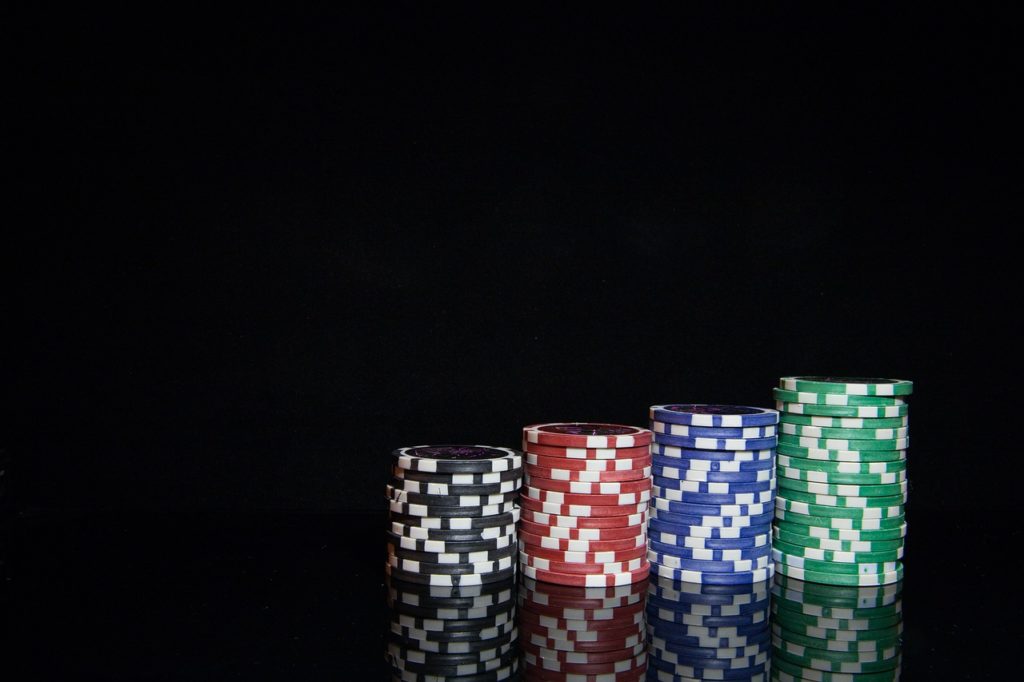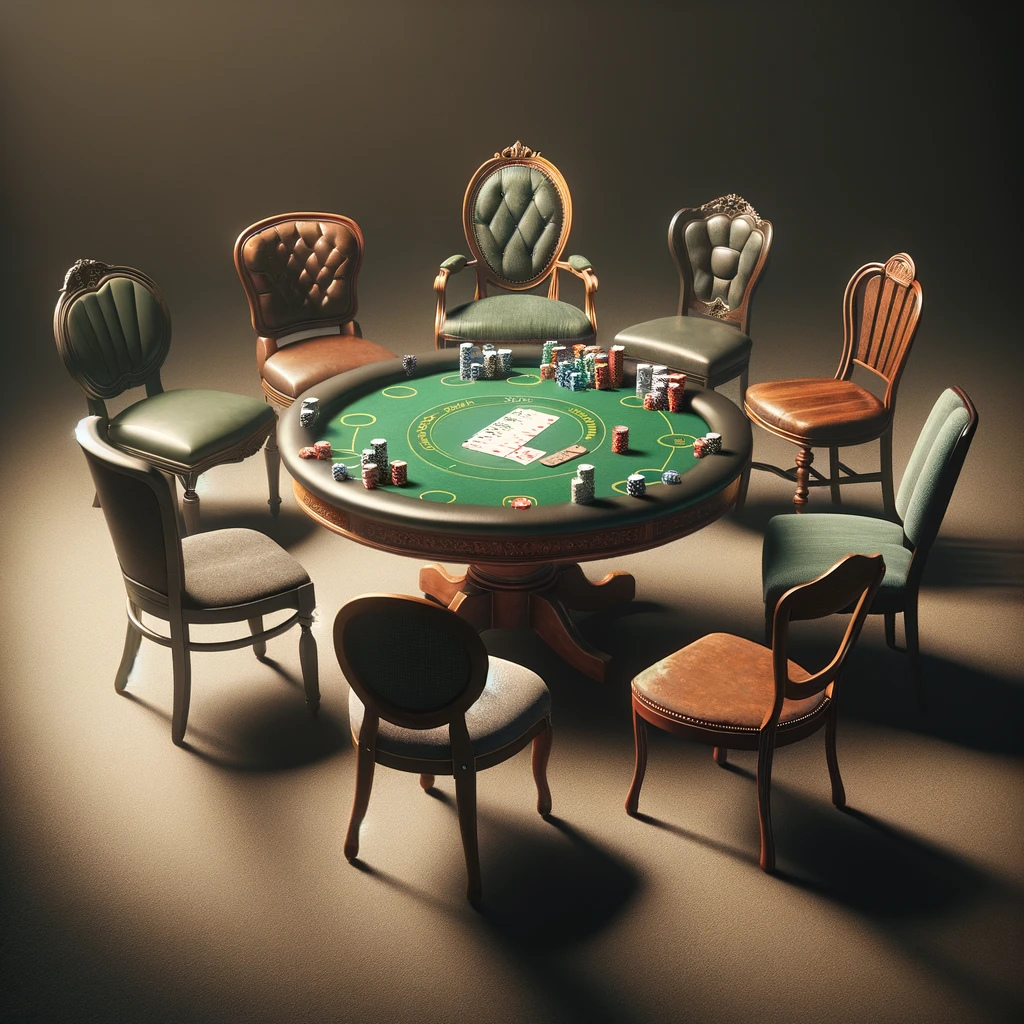

Cash Games or Tournament Play? What are the skills you need to master one, or both?
Poker is a game of skill, strategy, and psychology that comes in many forms, with the two most popular being cash games and tournament poker.
While they share fundamental elements, such as hand rankings and betting rounds, these two formats differ drastically in strategy, risk, and player mindset. Many players excel in one format but struggle with the other, underscoring just how significant the differences are.
Understanding the nuances of both can enhance a player’s versatility and increase their chances of success in either cash games or tournament poker play.
You can put these principles into practice by becoming a member at bet365 now!
Here are the five key differences between cash game poker and tournament poker:
Always remember to gamble responsibly.
Check out bet365’s Safer Gambling page for more details.

Cash Games:
In cash games, each player buys in for a set amount of money, which directly translates into chips. A cash game buy-in is flexible, allowing players to choose a stack size that suits their preferred playing style.
For instance, many no-limit cash games offer minimum and maximum buy-in ranges, often 100 big blinds (BB) or more. Players can add to their stack at any time if they fall below the table minimum, and they can leave the game whenever they wish, cashing out their chips for money.
Tournaments:
In a poker tournament, players pay a fixed entry fee that buys them a set number of chips. Every player starts with the same amount, creating a level playing field. This initial chip stack does not directly translate to money, as chips in tournaments represent progress rather than cash value.
Once players lose their chips, they are typically eliminated from the tournament, and the game continues until one player has all the chips. The structured buy-in and elimination format changes the stakes and incentives compared to cash games.
Difference Summary:
The buy-in flexibility of cash games allows players to control their stack size, whereas tournament poker is more rigid, with all players starting with identical stacks and limited opportunities to rebuy. This difference creates a unique dynamic in each format and affects player strategy.

Cash Games:
Cash game blinds remain constant throughout the session, meaning that the value of each hand and the stack sizes of players remain relatively stable.
This stability allows players to make decisions without the pressure of escalating blinds that can force them into riskier plays.
Tournaments:
Tournaments follow a structured blind increase, usually happening every 10-20 minutes in online play or every 30-60 minutes in live tournaments.
This gradual increase in blinds creates a sense of urgency, forcing players to adapt their strategies as the blinds become a more substantial portion of their stacks.
Deep in tournaments, when blinds become substantial relative to the average stack, players may need to adopt an aggressive or short-stacked strategy to avoid elimination.
Difference Summary:
The static blinds in cash games allow for more patience and control, while escalating blinds in tournaments create a fast-paced environment where players are pressured to play more hands as their relative chip stacks dwindle.
Cash Games:
Cash game players aim to manage risk carefully, as each decision impacts real money. Players can sit down with a predetermined bankroll and establish limits to avoid going beyond their budget.
Cash game professionals typically employ a bankroll management strategy that allows them to absorb the variance without going broke, such as maintaining a bankroll 20 to 50 times the buy-in for the stakes they play.
Since players can leave the table anytime, cash games offer more flexibility to stop losses or lock in wins.
Tournaments:
Tournament players face a unique challenge in that once they pay their entry fee, they are committed for the entire event. The structured format demands a different kind of bankroll management, as variance in tournaments is significantly higher than in cash games.
The winner-takes-all, or tiered prize structure, means that only a small percentage of players will cash in a tournament.
Therefore, tournament professionals often have to budget for extended losing streaks, and successful players tend to manage larger bankrolls, sometimes 100 times their average buy-in, to account for the variance and risk of busting out without winning any money.
Difference Summary:
Cash games allow for tighter control over losses and offer players the option to leave the table at any time, minimising potential losses.
Tournaments, on the other hand, require a much larger bankroll and the tolerance for long periods without returns, increasing the risk factor due to their structure and the difficulty of consistently finishing “in the money.”

Cash Games:
Cash games require a consistent, disciplined approach with an emphasis on exploiting small edges and making mathematically sound decisions. Because players can rebuy, the stakes for each individual hand don’t escalate in the same way they do in tournaments.
Skilled cash game players often use deep-stacked strategy, including post-flop play, as they have room to manoeuvre and play for value.
The goal is to make profitable decisions and take advantage of opponents' mistakes, often adopting a tighter and more selective hand range.
Tournaments:
Tournament poker strategy changes as the event progresses. Early in a tournament, players often take a similar approach to cash games, focusing on building their stacks with minimal risk.
As the tournament progresses, especially around the bubble (the point at which players start getting paid), strategies shift towards survival and capitalising on other players’ tendencies to tighten up.
In the late stages, when stacks are typically shorter relative to the blinds, players adopt a more aggressive style, relying heavily on shove-or-fold strategies.
Tournament players also exploit the Independent Chip Model (ICM) in decision-making, as the value of chips fluctuates based on the prize structure.
Difference Summary:
Cash games reward a steady, calculated approach focusing on small but consistent gains, while tournaments demand adaptive strategy, aggression, and an understanding of chip value relative to the prize pool as the tournament progresses.
Cash Games:
Cash games allow players to control their session lengths, meaning they can leave the table whenever they feel tired, tilted, or unfocused.
This flexibility enables cash players to minimise the effects of mental fatigue and manage their psychological state, especially after a big loss.
Cash games have a somewhat lower mental strain in this respect, as players are less pressured by time constraints and escalating blinds.
Tournaments:
Tournaments can be mentally gruelling, as players are required to remain engaged for hours or even days to reach the final stages. The potential for a high payout builds excitement but also increases stress, especially as players reach critical points in the tournament.
Tournament players need to manage their emotions carefully through the highs and lows, often experiencing intense swings in chip counts.
A key part of tournament mental strategy is resilience, as a single bad beat or misstep can significantly impact their standing.
Tournament players also face immense pressure around the “bubble,” as one poor decision could mean missing out on cashing altogether.
Difference Summary:
Cash game players benefit from flexible session management and can avoid psychological burnout, while tournament players need to endure longer, high-stakes sessions with mounting pressure.
The endurance required to succeed in a tournament can be exhausting, but it's also necessary for deep runs and potential victories.
While cash games and tournament poker share foundational rules, they differ vastly in strategy, risk management, psychological approach, and pacing.
Cash games allow for more control over session duration, stack management, and risk, making them ideal for players who prefer steady, less volatile gains.
Tournaments, on the other hand, require a unique skill set, including adaptive strategy, resilience, and a larger bankroll to withstand the inevitable variance.
Each format offers its own unique rewards and challenges. Cash games can deliver consistent income for skilled players, while tournaments provide the chance for much larger value payouts, making them attractive to those willing to embrace the high variance.
Whether a player prefers cash games or tournaments depends on their personal preferences, risk tolerance, and strategic inclinations.
Understanding these five key differences can help players navigate each format successfully and adapt their approach to capitalise on the opportunities each one offers.
Always remember to gamble responsibly.
Check out bet365’s Safer Gambling page for more details.
Updated on 29th October 2024
#AD Bonus Referrer Code is an affiliate of the brands we promote throughout this site. While we strive to maintain accuracy throughout our content, we do receive compensation for this promotion.
© 2025 BonusReferrerCode.com – All Rights Reserved
Worried about your gambling? When the fun stops – STOP!